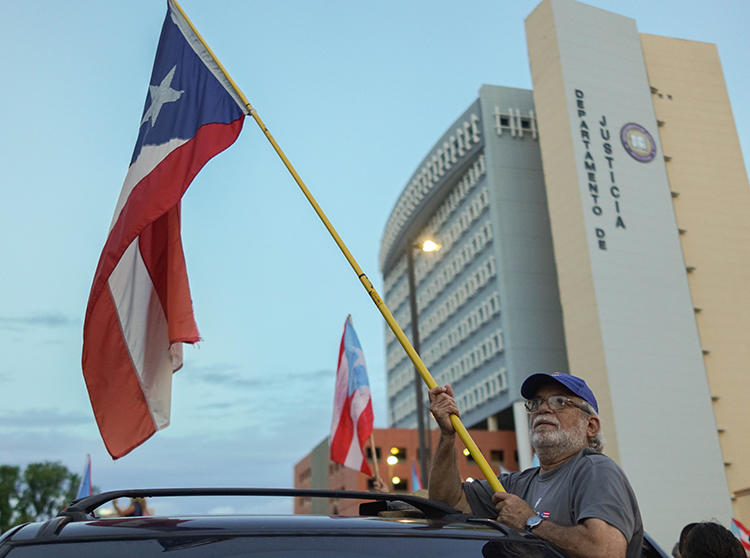On September 27, 2019, Denis Márquez, a member of Puerto Rico’s House of Representatives, told the staff of Pulso Estudiantil, a student-run newspaper based at the University of Puerto Rico, that the island’s Justice Department had acquired information from the paper’s Facebook account, as well as from Diálogo UPR and the Center for Student Communication, two other student-run outlets, according to news reports and a report by the U.S. Press Freedom Tracker, a CPJ partner.
Facebook turned over about 1,500 pages of information, specifically covering the accounts’ activities from April 26 to 28, 2017, including private messages that journalists exchanged with sources, location data from accounts tied to the outlets, and the contact information and credit card information of the publications’ administrators, according to those news reports and a copy of the Justice Department warrant, which CPJ reviewed.
The warrant barred Facebook from disclosing the Justice Department request for 90 days, but Facebook did not notify any of the outlets even after that deadline had expired, according to the Press Freedom Tracker.
In April 2017, Diálogo UPR, Pulso Estudiantil, and the Center for Student Communication had covered student protests against austerity measures imposed by the island’s Financial Oversight Management Board.
The information was collected by Puerto Rico’s Justice Department for use in a trial against seven student protesters on charges including illegal assembly, rioting, and intimidation of public officers, according to The Intercept.
Pulso Estudiantil is an independent publication formed by a group of university students in 2014, which reports on campus events, local politics, and culture, co-founder Roberto Nava told CPJ in an interview. Diálogo UPR was founded in 1986 as a semi-independent publication owned by the University of Puerto Rico in San Juan, according to the publication’s website. The Center for Student Communication is an independent student-run activist group and news website that has covered student activism on the Río Piedras Campus since 2011, according to the center’s Facebook page, which has not been updated since November 2019. CPJ messaged the center on Facebook for comment, but did not receive any response.
Víctor Rodríguez Velázquez, who was director of Diálogo UPR during the protests in April 2017, told CPJ that his newsroom learned about the warrant from Marisol Nazario, a journalist at Pulso Estudiantil, after Márquez told that outlet’s staff.
“We trust social media, not just for work purposes, but as individuals. I could not stop thinking about losing my sources’ trust,” Rodríguez told CPJ. “I thought that they wouldn’t rely on us ever again thinking that the [territorial] government has spied on us.”
The search warrant was submitted on May 5, 2017, by an unidentified agent in the police cybercrime unit and signed by Superior Court Judge Rafael E. Jimenez-Rivera.
The agent wrote that obtaining the pages’ chat histories and other information would “help us in the investigation, not only by proving the event captured in the videos we are requesting but by allowing us to understand the nature of the interaction between these pages and their visitors, and between the page visitors, which could also contain evidence of the commission of crimes.”
In April 2019, the university administration closed Diálogo UPR due to budget cuts, according to Odalis Rivera Montalvo, who worked as the paper’s editor for 29 years. Rivera told CPJ that she suspects the university actually closed the publication for political reasons.
CPJ emailed and called the university, but did not receive any response. CPJ emailed Facebook for comment, but did not receive any response.
Brenda Quijano Arroyo, the director of the Puerto Rican Justice Department’s media department, told CPJ in an email that the search warrants were sought “in compliance with constitutional standards” and that the Justice Department “did not target media organizations.”
